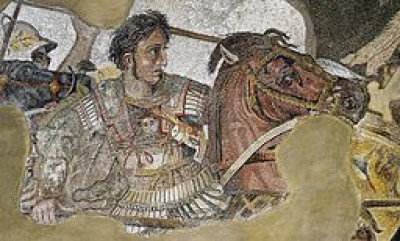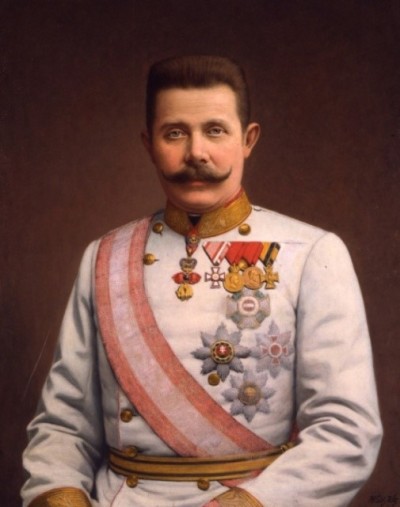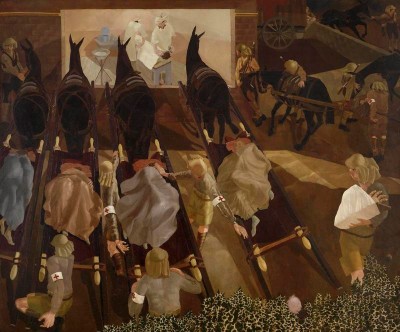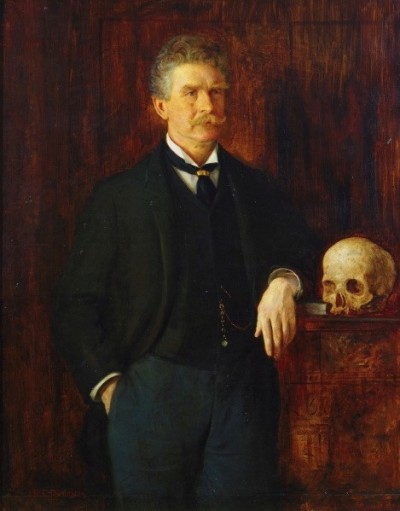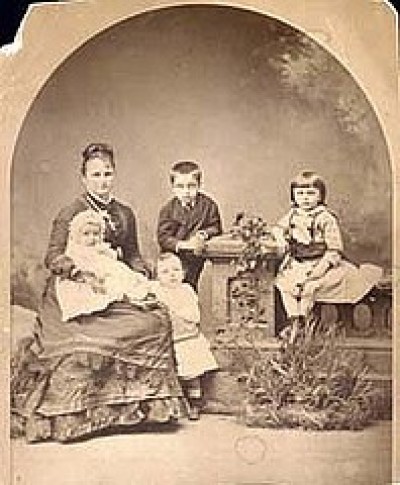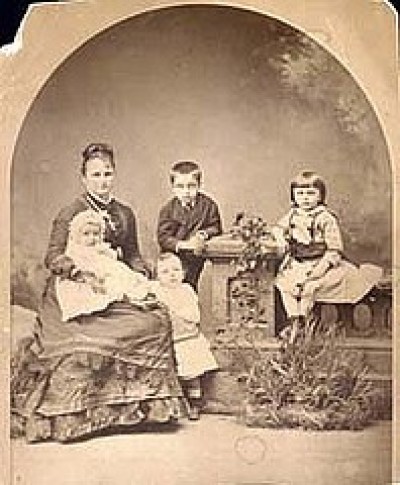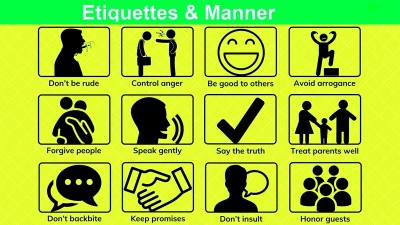Course description
Alexander the Great
The Greek King who Nearly Ruled India
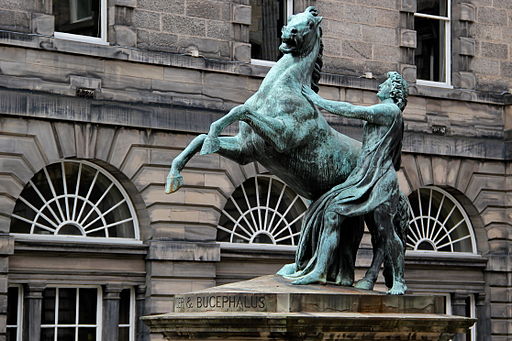 In 356 BC, a prince was born in Macedon, just north of Greece. His father was a successful soldier, called Philip II, and was keen that his son would learn all the skills to prepare him, one day, to be king himself. He even employed the great philosopher, Aristotle, to be his teacher until he was sixteen years of age.
In 356 BC, a prince was born in Macedon, just north of Greece. His father was a successful soldier, called Philip II, and was keen that his son would learn all the skills to prepare him, one day, to be king himself. He even employed the great philosopher, Aristotle, to be his teacher until he was sixteen years of age.
There were early signs that Alexander was no ordinary boy. When he was only ten, a horse seller visited his father’s palace, for example, to show the King a fine horse. But the animal was so frightened that he did not let anybody ride him. The horse seller was going to leave the palace when Alexander asked his father if he could try to make friends with the horse. Nobody believed that this was possible but Alexander did not give up and, soon, the horse allowed the young prince to ride him. The boy called the horse Bucephalus. The animal accompanied him half-way across the world with the army and, when the horse died of old age, Alexander named a city for him.
Philip was not only King of Macedon but the commander of all the armies of Greece. He conquered most of the country and so the Greeks did not really have much choice about this. However, there were often small groups of soldiers or cities that wanted to be independent of the Macedonian king and, so, Philip sometimes had to leave the comfort of his palace to fight. When Alexander was just sixteen, Philip left him in charge of his kingdom while he was away making war. However, this was just the chance that some cities and small kingdoms were waiting for. They wanted independence from Macedon and now there was an opportunity. A sixteen-year-old boy could not win a war against them. How wrong they were! Alexander beat every rebel army and kept Macedon safe until his father returned.
 When Philip II, his father, was killed by one of his own bodyguards, Alexander became King of Macedon at the age of twenty. For the next twelve years until his death at thirty-two, Alexander spent nearly all his time at war. He was very ambitious and needed to show the world that he was an even greater king than his father. He also made decisions very quickly and easily became very angry. However, there was another side to Alexander: he loved philosophy, science and the arts and, although he had a bad temper, listened to other people’s ideas and reasons.
When Philip II, his father, was killed by one of his own bodyguards, Alexander became King of Macedon at the age of twenty. For the next twelve years until his death at thirty-two, Alexander spent nearly all his time at war. He was very ambitious and needed to show the world that he was an even greater king than his father. He also made decisions very quickly and easily became very angry. However, there was another side to Alexander: he loved philosophy, science and the arts and, although he had a bad temper, listened to other people’s ideas and reasons.
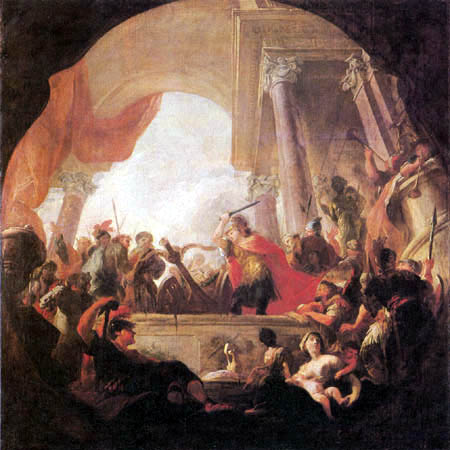 We can see these characteristics in some of the stories about him – whether these are true or not. For instance, when Alexander attacked Anatolia (now called Turkey), he discovered a knot in a temple, which nobody could untie. Because he did not want to waste time, Alexander pulled out his sword and cut through it, saying that he had now solved the problem.
We can see these characteristics in some of the stories about him – whether these are true or not. For instance, when Alexander attacked Anatolia (now called Turkey), he discovered a knot in a temple, which nobody could untie. Because he did not want to waste time, Alexander pulled out his sword and cut through it, saying that he had now solved the problem.
Alexander not only conquered Anatolia though. He also attacked Egypt and made the land his own as well as building the capital (at that time), Alexandria. He continued his father’s fight against the all-powerful Persian Empire and beat the king, Darius III, adding the Persian lands to his empire. The young king did not stop there though. He continued making war and expanding his land until he reached north-west India. Here, however, his soldiers – so many years away from their homes in Macedon – refused to go farther. They were worried that they would never see their families and homes again. Alexander had no choice: he could only start his journey home.
On the way, Alexander fell very ill. We cannot be sure why but many students of his times believed that Alexander died of poisoning. Another story says that some of his advisors thought his doctor was trying to kill him. To show his trust in the man, Alexander immediately took the medicine the doctor was preparing and drank it all. We will never know if the medicine was poisoned or not, but after twelve days, Alexander died.
 Nehru wrote to his daughter, Indira Gandhi, that Alexander’s ambition all ended in nothing. His love of war and his growing empire died with him because his lands soon broke up. However, Egypt’s pharaohs (or kings) remained Greek until the death of Cleopatra three hundred years later. Many people in Anatolia still spoke Greek in 1920, until Mustafa Kemal Ataturk established modern Turkey. Greek philosophy mixed with Ashoka’s Buddhist religion and travelled over a lot of Asia. In short, Alexander believed in taking the best from many different cultures. For example, he wore Persian clothes when he was in that country.
Nehru wrote to his daughter, Indira Gandhi, that Alexander’s ambition all ended in nothing. His love of war and his growing empire died with him because his lands soon broke up. However, Egypt’s pharaohs (or kings) remained Greek until the death of Cleopatra three hundred years later. Many people in Anatolia still spoke Greek in 1920, until Mustafa Kemal Ataturk established modern Turkey. Greek philosophy mixed with Ashoka’s Buddhist religion and travelled over a lot of Asia. In short, Alexander believed in taking the best from many different cultures. For example, he wore Persian clothes when he was in that country.
Still today, Alexander is seen as one of the greatest generals in all history. He made one of the largest empires and his name will live forever.
If you want to watch some videos on this topic, you can click on the links to YouTube videos below.
If you want to answer questions on this article to test how much you understand, you can click on the green box: Finished Reading?
Videos :
1. Aristotle and Alexander (3:38)
2. Alexander the Great (4:51)
3. Alexander the Great and Bucephalus (3:30)
4. Alexander the Great - King of The Ancient Greek Kingdom Macedonia (02:51)
5. The Mysterious death of Alexander the Great (06:50)
6. Alexander the Great King Biography (02:18)
7. Most Important Man in History (06:35)

 In 356 BC, a prince was born in Macedon, just north of Greece. His father was a successful soldier, called Philip II, and was
In 356 BC, a prince was born in Macedon, just north of Greece. His father was a successful soldier, called Philip II, and was  When Philip II, his father, was killed by one of his own bodyguards, Alexander became King of Macedon at the age of twenty. For the next twelve years until his death at thirty-two, Alexander spent nearly all his time at war. He was very
When Philip II, his father, was killed by one of his own bodyguards, Alexander became King of Macedon at the age of twenty. For the next twelve years until his death at thirty-two, Alexander spent nearly all his time at war. He was very  We can see these characteristics in some of the stories about him – whether these are true or not. For instance, when Alexander attacked Anatolia (now called Turkey), he discovered a
We can see these characteristics in some of the stories about him – whether these are true or not. For instance, when Alexander attacked Anatolia (now called Turkey), he discovered a  Nehru wrote to his daughter, Indira Gandhi, that Alexander’s ambition all ended in nothing. His love of war and his growing empire died with him because his lands soon broke up. However, Egypt’s pharaohs (or kings) remained Greek until the death of Cleopatra three hundred years later. Many people in Anatolia still spoke Greek in 1920, until Mustafa Kemal Ataturk
Nehru wrote to his daughter, Indira Gandhi, that Alexander’s ambition all ended in nothing. His love of war and his growing empire died with him because his lands soon broke up. However, Egypt’s pharaohs (or kings) remained Greek until the death of Cleopatra three hundred years later. Many people in Anatolia still spoke Greek in 1920, until Mustafa Kemal Ataturk 